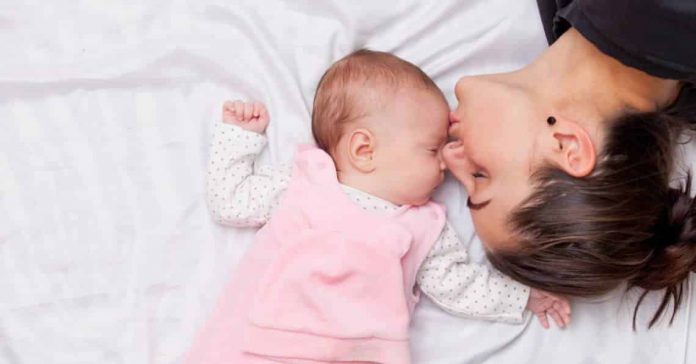A British study published in the online BMJ Open suggests that bed-sharing with an infant increases the risk of sudden infant death syndrome (SIDS) fivefold.
According to the Centers for Disease Control and Prevention (CDC), SIDS – the unexplained death, usually during sleep, of a seemingly healthy baby – is the third leading cause of all infant deaths in the U.S. The agency estimates there are 4,500 SIDS deaths in the United States annually.
Some countries, including the U.S. and the Netherlands, advise all parents against sharing a bed with their baby for the first three months. The U.K. currently only advises certain groups, including parents who smoke, drink or use drugs, not to bed-share.
In the largest study of its kind, British researchers from the London School of Hygiene & Tropical Medicine (LSHTM) examined the records of 1,472 SIDS cases and 4,679 control cases from five major studies in the U.K., Australia, Asia and Europe.
A May 21 LSHTM news release reported that study authors found:
The risk of SIDS is five times greater among bed-sharing babies under three months even if the parents did not smoke and the mother had not consumed alcohol or drugs when compared to infants who room-shared.
With no other risk factors present, 81 percent of SIDS cases among infants under 3 months could have been prevented had the infants not slept in the same bed as the parents.
The peak period for SIDS is between 7 and 10 weeks.
The risk associated with bed sharing decreases as the baby gets older.
“The current messages saying that bed-sharing is dangerous only if you or your partner are smokers, have been drinking alcohol or taking drugs that make you drowsy, are very tired, or the baby is premature or of low birth weight, are not effective,” wrote researchers in the study. They added that doctors need to “take a more definitive stance against bed-sharing for babies under 3 months.”
Study authors emphasized that they are not suggesting that babies shouldn’t be brought to their parents’ bed for comforting or feeding as long as they are returned to their cribs to sleep.
Commenting on the study, Dr. Rachel Moon, a pediatrician at Children’s National Medical Center in Washington, DC, and chair of the American Academy of Pediatrics task force on SIDS, told Huffington Post, “This is a really important study, because it does what no other study has done before,” in that it separated out each factor linked to increased SIDS risk.
The study, added Moon, should send a message to parents who may think the recommendation about not sleeping with baby doesn’t apply to them.
“Even if you do everything right, bed-sharing increases a baby’s risk,” said Moon.








